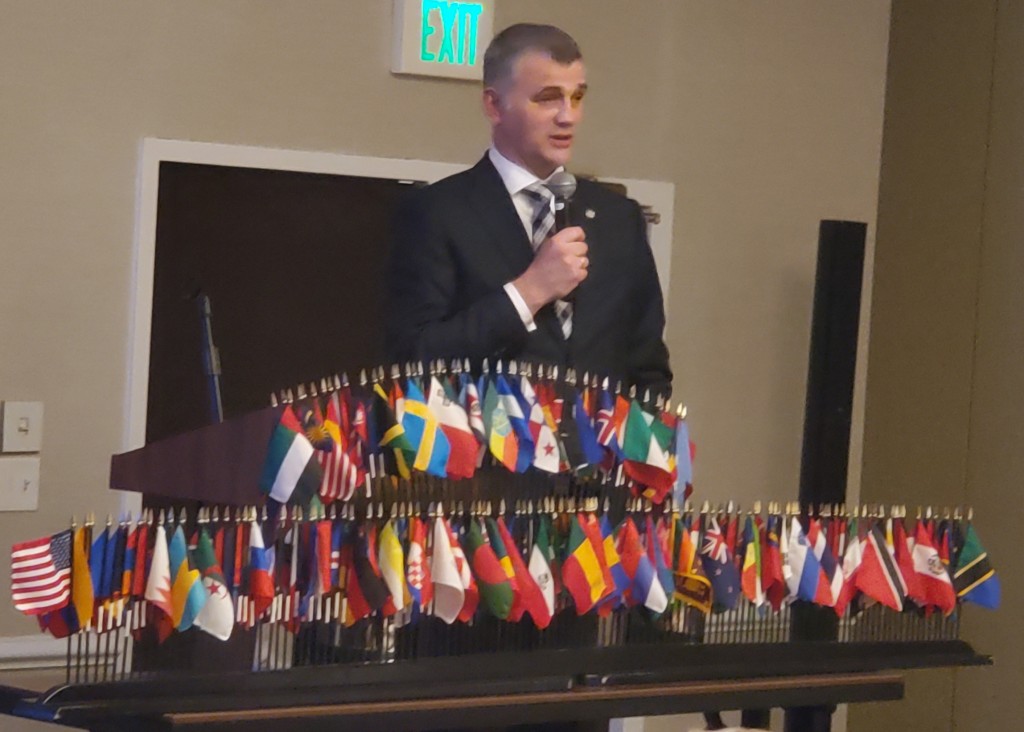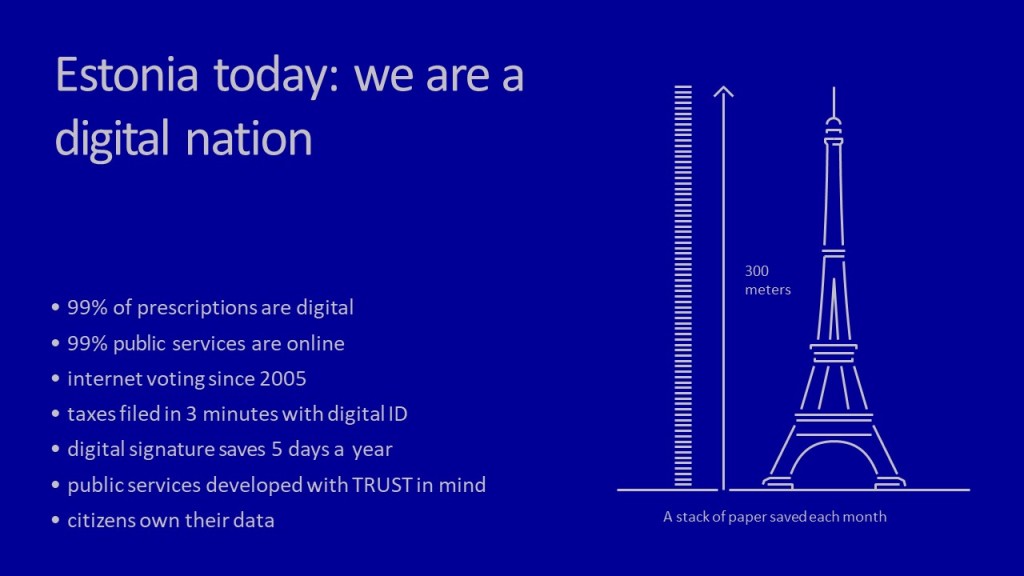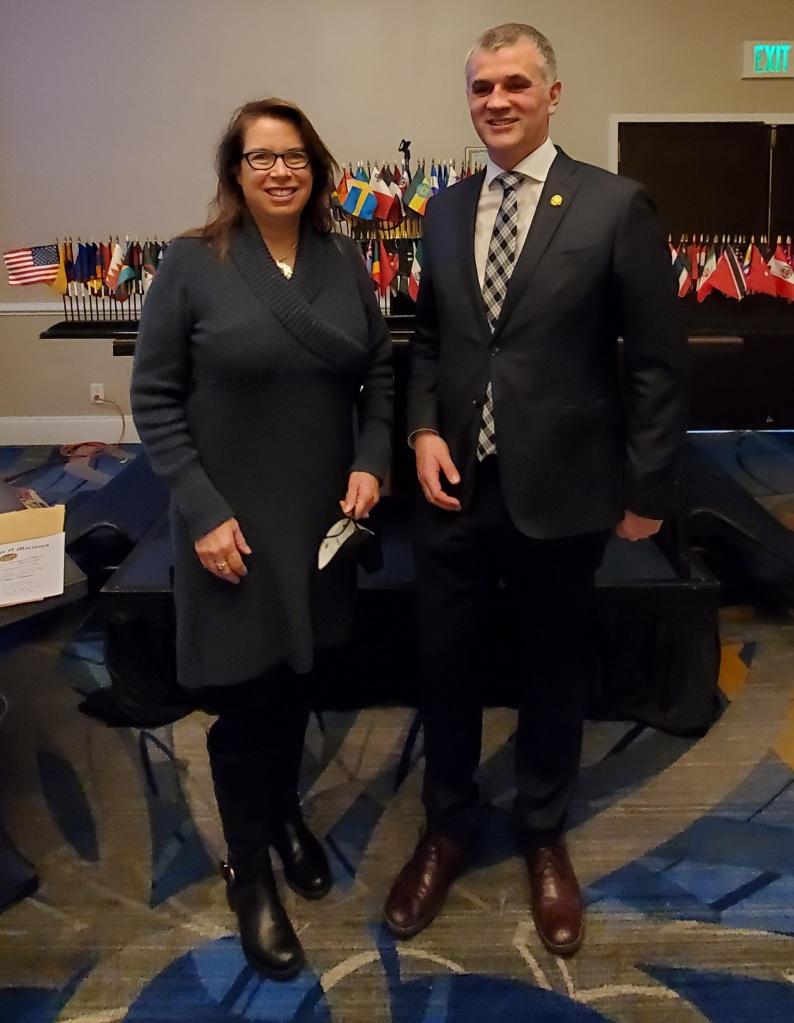Estonian Ambassador to the United States Kristjan Prikk was the featured speaker for the January 5 dinner event held by the International Club of Annapolis, Maryland. The club holds monthly dinners with speakers from September through June. Since its founding in 1962, it has hosted presentations by ambassadors from over 115 countries and regions throughout the globe, including five ambassadors from Estonia to the U.S. since 1990, highlighting the special relationship between Estonia and Maryland as National Guard State Partnership Program partners and the sister city relationships between several cities throughout Maryland and Estonia.

Ambassador Prikk shared many insights about Estonia and Estonians, the country’s history, and its foreign policy. He noted that preserving nature is a priority there and that many western Europeans visit Estonia to experience what has been lost in their countries, namely nature and solitude. When asked about the top three places to visit, old town Tallinn came first for its uniquely preserved medieval walls and buildings. He also affirmed Tallinn as the site of the first documented Christmas tree (although Estonia’s Latvian neighbors would say it was Riga). Narva came next because its proximity to Russia “makes people get what’s at stake” and helps visitors better understand the cultural differences and issues of Russian speakers in Estonia. Finally, he recommended Tartu for its university that predates Harvard and its thriving, youthful, European atmosphere. He also shared statistics on the success of Estonia as a digital nation, which are shown in the photo below.

He explained Estonia’s “tragic mistake” of staying out of conflict, which has influenced the nation’s decisions and priorities today. Because Estonians have historically tended to avoid conflict, particularly during the interwar years of independence, few nations came to their aid when they needed it. Estonia’s foreign policy now emphasizes supporting others as an active ally so that they will get support should they need it in the future. Membership in NATO and robust participation in NATO missions are cornerstones of Estonia’s security policy and the contribution of its defense forces is recognized and commended among its allies.
The ambassador praised U.S. support in the form of high-level visits and cooperation with Estonian forces. He noted the United States’ recognition of independence of all three Baltic nations on July 28, 1922, and the subsequent establishment of diplomatic relations, making 2022 the centennial year for formal U.S. – Estonia ties. He estimated that there are 25,000 Americans with roots in Estonia, 10,000 of whom strongly identify as Estonian.
Given the current buildup of Russian troops on Ukraine’s border and upcoming talks with Russia, several audience members asked about Estonia’s position on that conflict. Ambassador Prikk began his response with the story of a poll in 2006 or 2007 by the Ukrainian government asking its citizens about their thoughts on joining NATO. When the question was posed using NATO as an acronym, 20% of Ukrainians were for and 80% were against Ukraine becoming a NATO member. When North Atlantic Treaty Organization was spelled out, the percentages reversed, perhaps implying that joining a north Atlantic alliance sounded good, but awareness of what NATO actually stood for was low or misunderstood.

He went on to indicate that Estonia strongly supports Ukraine’s sovereignty and that negotiations or concessions “at gunpoint” are not valid. All issues related to European security are on the table at the same time, including Russia’s illegal annexation of Crimea and its occupation of eastern Ukraine, Georgia, and Moldova. Estonia will engage fully in support of Ukraine during January’s talks with Russia at NATO and the Organization for Security and Cooperation in Europe and continue to stand by Ukraine as the situation evolves.
Please also see the Embassy of Estonia’s press release on Ambassador Prikk’s presentation at washington.mfa.ee. More information on the relationship between Estonia and Maryland is available on the Maryland Estonia Exchange Council website at marylandestoniaexchangecouncil.org. EANC will continue to attend their events and keep readers informed on activities of interest.


